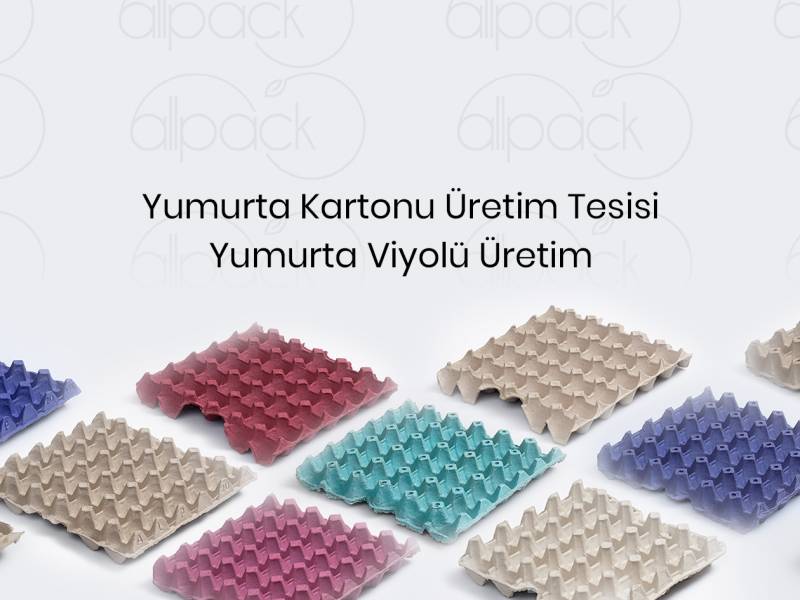Egg Carton Production Factory
Egg Carton Production Factory is a special packaging that is vital for the protection and transportation of eggs. They are produced in accordance with quality and hygiene standards.
Egg Carton Production Factory
Eggs are a nutritious and versatile food source. The fact that this valuable food reaches the consumer in a fresh and safe way emphasizes the importance of egg carton production factorys. These factorysproduce special cardboard packages that provide protection and transportation of eggs.Egg carton production factorys are enterprises equipped with modern technology and operating under hygienic conditions. In these factorys, egg cartons are produced, packaged and distributed. Egg cartons are special packages that allow eggs to be stored and transported safely.
Plants usually produce large quantities of egg cartons on a daily basis. These cartons factorys the transportation of eggs and their regular presentation on grocery shelves. Egg cartons can be produced in different sizes and capacities, so that they offer options that suit the needs of consumers.
Egg carton production is carried out under hygienic conditions and quality control is carried out. The cartons prevent the eggs from cracking or getting dirty. In addition, important information such as the production date and expiration date are printed on them, so that consumers have the necessary information about the product.
Egg carton production factorys strictly adhere to hygiene and quality standards. The production process is meticulously managed, especially in hygiene and health issues. The materials used in the facilities are usually recyclable or have environmentally friendly properties. This contributes to reducing the environmental impact and promoting sustainable production practices. Measures are taken at the facilities to properly manage and dispose of wastes that may occur during production.
Egg carton production can be carried out flexibly according to the demands of the Sunday. Specially designed cartons can be produced in various sizes and colors. In addition, brand logo or special design prints can also be made according to customer requirements. This provides an opportunity for brands to promote and differentiate their products.
Factorysoften provide employment to local communities and contribute to local economies. In addition, a logistics network is created during the production and distribution of egg cartons, which provides support to the transportation and transportation sector. The facilities work seriously on compliance with local and international food safety standards.
Egg carton production factorys play an important role in ensuring the safe storage, transportation and presentation of eggs. These facilities adhere to high standards in hygiene and quality issues and promote environmentally friendly practices. In addition, it provides employment to local communities and contributes to economies. Egg cartons are a symbol of environmental sustainability as well as providing consumers with a reliable and fresh food source.
Egg viol is a common and effective type of packaging used for storing and transporting eggs. These special cartons provide the protection of eggs while at the same time offering consumers the opportunity to make presentations in a practical way. Egg manufacturers carefully design and comply with quality standards when producing these cartons.
The main function of egg cartons is to protect eggs from external factors. The inner surface of the cartons prevents the eggs from cracking or being damaged. This is of critical importance for the preservation of fresh eggs. In addition, the cartons ensure that the eggs are spaced evenly December, which factorys the orderly presentation of the product.
Egg cartons can usually carry 6, 12, 18, 20, 25 or 30 eggs. These different capacities offer options according to the needs of consumers. Also, some cartons can be personalized with special designs or prints, which helps brands promote their products.
Egg carton production factorys attach great importance to hygiene and quality control. Throughout the production process, the quality of materials and hygiene conditions are constantly monitored. In addition, production facilities focus on sustainability principles and use recyclable materials.




